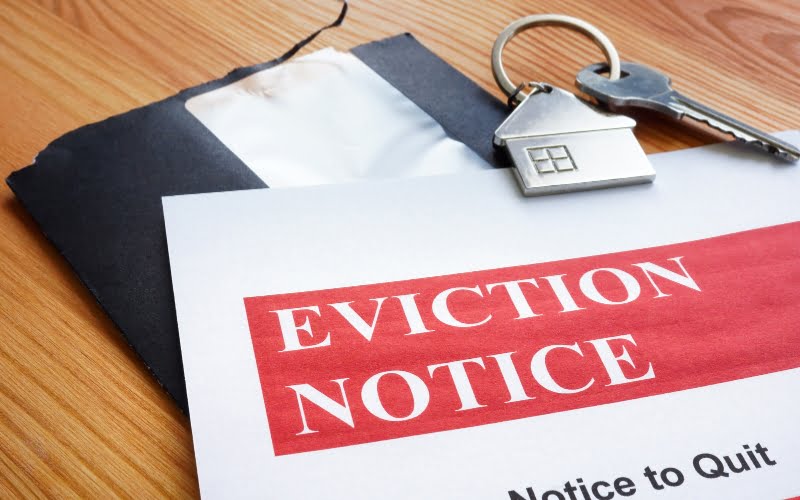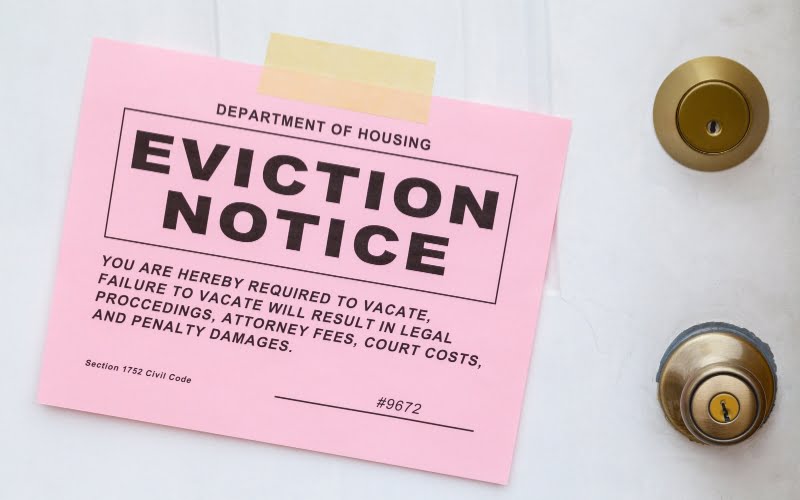Last Updated on March 18, 2024 by Kelvin Nielsen
Many things can make a roommate situation not work out. From having different expectations, to messiness issues, to inconsiderations, to lack of communication, to personal clashes, the problems could be many and varied.
Now, evicting a roommate in Alaska will generally depend on whether the roommate has a lease or not. This blog will walk you through everything you need to know in this regard.
Evicting a Roommate in Alaska
Can a tenant evict a roommate? This is one of the most common questions that comes up when someone has a problem with their roommate. In short, you cannot evict a tenant!
With that in mind, if the tenant is on the lease, here’s what you must know.
The Roommate is On the Lease
If the roommate you’re trying to evict is on the lease, then you would not be able to evict them yourself. You would need the intervention of your landlord.
Under Alaska law, landlords can evict a tenant for any of the following just causes.
- Nonpayment of rent
- End of lease / no lease
- Nonpayment of utilities
- Lease violation
- Excessive property damage
- Illegal activity / Repeat lease violation
If the roommate has done any of these things, then you can request your landlord to evict them from the lease. This is especially important if you’re jointly named on the lease. Because, if you fail to report the issue and the landlord comes to learn about it later, you could also be at risk of eviction.
The following is a basic overview of the eviction process the landlord will need to follow to evict the roommate from the property.
- Have a legal ground to warrant the eviction.
- File a lawsuit in the court of the proper county. The court will subsequently issue you with a copy of the Summons and Complaint, which will need to be served on the roommate by a process server or sheriff.
- Wait for the roommate to answer. This will give the roommate an opportunity to fight or stop their eviction if they have a legal defense.
- Both parties will need to attend the eviction hearing. In Alaska, it normally takes 15 days after the filing of a complaint with the court for a hearing to be held.
- If the judgment is in your landlord’s favor, the court will issue them with a Writ of Assistance. This will authorize the sheriff to remove the roommate by force (if need be).
However, if the roommate isn’t on the lease, then they may not be considered tenants to begin with. Which, technically, means that the roommate doesn’t have any legal responsibilities to meet in regards to the lease anyways.
The Roommate is Not On the Lease
Before you take any action, it’d be important to know what Alaska law says about who exactly a “tenant” is. The Uniform Residential Landlord & Tenant Act defines a tenant as follows.
- One who signs a lease agreement with the landlord.
- One who has an oral agreement with the landlord.
- If the landlord/master tenant accepts a payment as rent.
If any of these situations has occurred, then the roommate would be considered a legal tenant. Their removal from the premises would have to follow state law.
However, if the roommate isn’t a legal tenant, then you could simply kick them out by serving them reasonable notice. If the roommate leaves upon the expiry of the notice, then great. However, if they don’t, then you may want the involvement of your landlord. That’s because it’d be illegal to lock them out, remove their personal belongings, or shut down a utility.
Conclusion
Alaska doesn’t have official cut-off points and requires landlords to specify terms in their tenancy agreements regarding subleasing and guest laws in their tenancy agreement.
Disclosure: The content herein isn’t a substitute for advice from a professional attorney. It’s only meant to serve educational purposes. If you have a specific question, kindly seek expert attorney services.
Sources: http://www.law.alaska.gov/department/civil/consumer/3403010.html, http://www.law.alaska.gov/department/civil/consumer/3403010.html, http://www.law.alaska.gov/department/civil/consumer/3403010.html, http://www.law.alaska.gov/department/civil/consumer/3403010.html,

Hi, I’m Kelvin Nielsen, an experienced landlord and accomplished real estate lawyer. My focus is on answering your questions about renting in the hopes of making your life as a renter or a landlord a bit easier.







